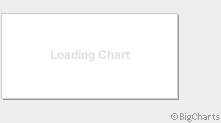
List of Names of the Plunge Protection Team
Hello Mr. and Mrs. Bellringer,
Greetings to u. I hope u r both doing well.
"Key to note here is that Goldman's program trading principal to agency+customer facilitation ratio is a staggering 5x, which is multiples higher than both the second most active program trader and the average ratio of the NYSE, both at or below 1x. The implication is that Goldman Sachs, due to its preeminent position not only as one of the world's largest broker/dealers (pardon, Bank Holding Companies), but also as being on the top of the high-frequency trading/liquidity provision "food chain", trades much more often for its own (principal) benefit, likely in tandem with the other top dogs on the list: RenTec, Highbridge (JP Morgan), and GETCO. In this light, the program trading spike over the past week could be perceived as much more sinister. For conspiracy lovers, long searching for any circumstantial evidence to catch the mysterious "plunge protection team" in action, you should look no further than this. "
For full article - Click Here
http://www.goldmansachs666.com/
I am
Sincerely yours,
Best regards,
SH
*************************************
Government Sachs is in control
Commentary: Investment bank has strengthened its position through bailout
|
|
"New leverage limits are not expected to impact Goldman's trading performance."
— -- Brad Hintz, Bernstein Research
David Weidner covers Wall Street for MarketWatch.
www.marketwatch.com/news/story/goldman-sachs-bailout-bonanza/story.aspx


